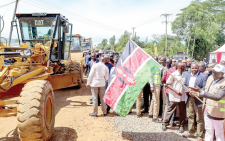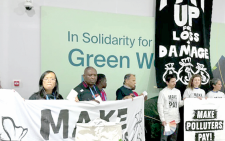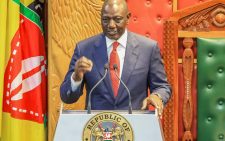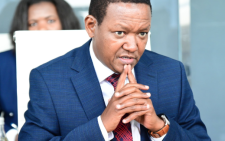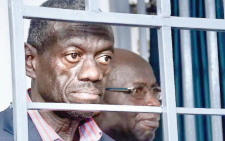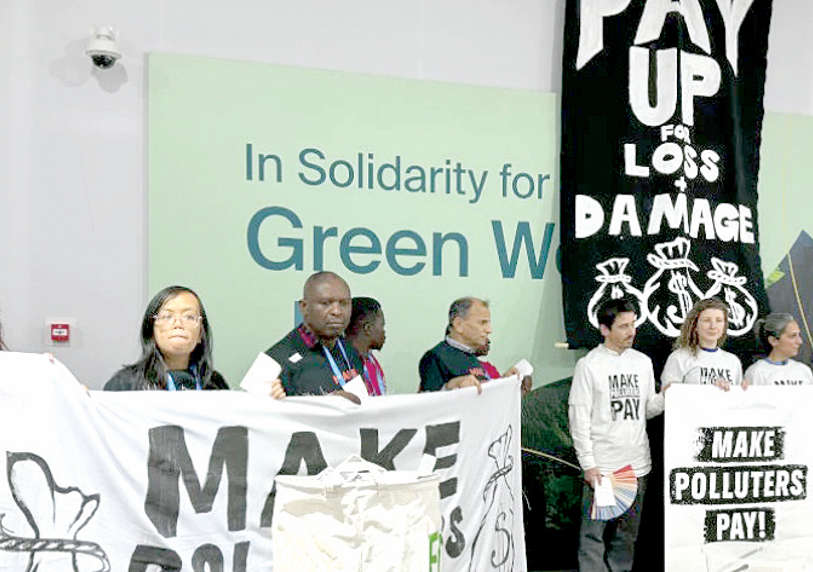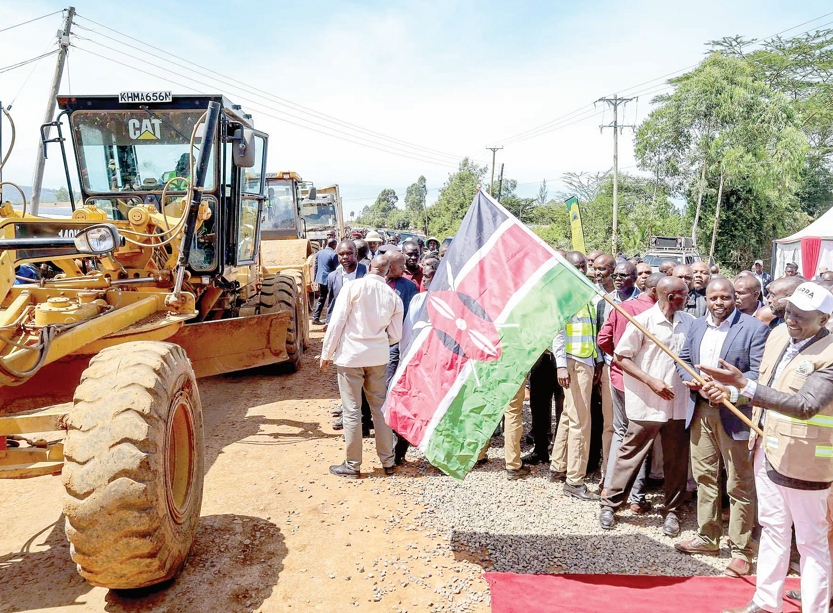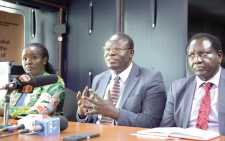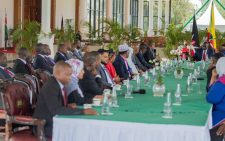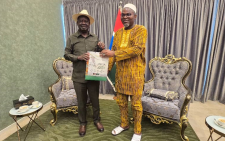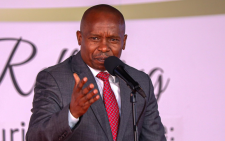The encroachment of India’s Adani Holdings into Kenya’s State-owned utilities has rolled out debates on governance, transparency and public trust in handling major national assets as the country mulls selling most of its public assets.
As Kenya considers selling most its public assets, the proposed lease of the Jomo Kenyatta International Airport (JKIA) to the Adani Group for 30 years under a Public-Private Partnership (PPP) has placed the State under intense scrutiny, with concerns raised about the lack of public participation and competitive bidding processes.
This is as the Controller of Budget revealed that National Treasury officials had made a quiet visit to India, to go and engage in discussions with Adani Energy Solutions regarding the implementation of another Public-Private Partnership (PPP) deal on the implementation of an energy deal, earlier this year.
The Controller of Budget Margaret Nyakang’o revealed the visit in last week’s report to parliament, noting that taxpayers bore the cost of the trip, amounting to Sh1,252,540 for two officials.
While the discussions centered on PPP, lack of transparency in the deal continues to raise questions as the visit happened while Indian billionaire Gautam Adani was in talks to lease JKIA for 30 years.
The Adani deal’s secrets are deep-rooted to a point that even Rigathi Gachagua, the Deputy President recently revealed to be unaware of the deal.
“I don’t know anything about Adani as I was not involved. I am reading about the deals in the newspapers like you people are doing,” Gachagua told journalists in a televised interview.
This serves as a reminder of the growing trust deficit between Kenyans and their leaders, and the increasing unconstitutional tendency of foreign conglomerates to gain a foothold in critical state utilities without the direct involvement or approval of citizens.
One of the most vocal critics of the Adani deal is Baringo North MP Joseph Makilap, who has raised questions about the true motivations behind the transaction.
During a recent session with Treasury Cabinet Secretary John Mbadi, Makilap openly challenged the rationale of the agreement, suggesting that it may be an attempt by the government to finance the “impugned budget” through other means. He urged the government to abandon the deal before it becomes a financial burden for the country.
“We know that its involvement is an attempt to finance the impugned budget through other deals. Why doesn’t this deal die at the stage it is?” the MP asked Mbadi recently.
Adani Holdings’ incursion into Kenya’s aviation sector was however met with criticism for the manner in which it unfolded, circumventing transparency and excluding public engagement.
The lack of involvement of Kenyan stakeholders – the taxpayers and users of JKIA – gives the impression that a few power brokers within the government are dealing off state assets without due consideration of the public’s best interests.
Proposal to develop
The genesis of the Adani-Kenya Airport Authority (KAA) proposal can be traced back to early 2023 when the Adani Group submitted a proposal to develop and renovate parts of JKIA under Kenya’s Public-Private Partnerships Act of 2021.
This law allows private companies to initiate project proposals and channel them to the government for consideration.
The terms of the deal reveal that Adani is seeking a build, operate, and transfer arrangement, under which they would have access to the airport’s cash flows over the 30-year period.
However, this structure has sparked outrage since, in most PPP agreements, the operator typically only has access to cash flows generated by the new project – not existing operations. Critics argue that Adani’s arrangement appears to bypass the typical PPP model, potentially giving them undue access to a significant revenue stream generated by the airport’s ongoing operations.
This element has fueled suspicions that the deal may not be in Kenya’s best interest, prompting concerns that it would lead to the siphoning of public funds into private hands, which is a far cry from the intended objective of PPPs, which is to attract investment while retaining public control over assets.
During a session before the Senate Transport Committee, CS Mbadi faced intense grilling from senators over the deal’s opaque nature. Senators raised concerns over why Adani’s proposal was the only one considered, despite reports indicating that other companies had expressed interest in a similar partnership with KAA.
Kisii Senator Richard Onyonka presented letters from three companies that had reportedly shown interest in the project, but these were allegedly disregarded in favor of Adani’s bid.
The heated exchange showed the lack of transparency and the failure to conduct a competitive bidding process, with the meeting descending into chaos as committee members walked out in protest against what they perceived as government gatekeeping.
This ongoing controversy is not just limited to Parliament. Civil society organizations have also taken a stand against the proposed deal.
The Law Society of Kenya (LSK) and the Kenya Human Rights Commission (KHRC) have jointly filed a lawsuit against the agreement, arguing that Kenya could independently finance the $1.85 billion needed for the airport’s renovation.
They contend that the lease arrangement poses significant fiscal risks, threatens job security, and lacks value for money for Kenyan taxpayers.
The high court has granted them leave to pursue a judicial review to challenge the potential lease of JKIA to Adani, marking a significant step in the legal battle against the project.
In parallel, public discontent over the deal has triggered strikes at JKIA, further demonstrating the level of anxiety and dissatisfaction among workers and the general public.
The opaque circumstances surrounding the deal have forced the government to defend its actions, with officials asserting that JKIA is operating above capacity and requires modernization.
They maintain that the airport is not for sale and that no final decision has been made, arguing that if the proposal is accepted, there will be safeguards to protect Kenya’s national interests.
“If structured properly, PPPs allow us to achieve value for money. Only those projects that pass rigorous screening and suitability tests will be developed through this model,” Energy CS Opiyo Wandayi told stakeholders during a recent public participation event in Nairobi.
“To foster development, we must collaborate with private partners like Adani, who have proposed taking on these billion-shilling projects,” he added.
The government’s stance, however, does little to address the concerns about Adani’s questionable track record in other countries.
Controversial dealings
The Adani Group has been embroiled in multiple controversies, particularly regarding its involvement in projects that have faced allegations of environmental violations, corruption, and displacement of communities.
These issues raise further doubts about the wisdom of entrusting such a critical national asset to a company with a history of controversial dealings. The controversy surrounding the Adani deal also sheds light on the broader issue of Kenya’s governance and management of public assets.
The Kenyan Constitution is clear about the need for public participation in major decisions affecting the country, particularly those involving the utilization of public resources.
However, the manner in which this deal was initiated, coupled with the lack of competitive bidding, suggests a disregard for the constitutional provisions designed to protect citizens’ interests.
For example, in other major infrastructure projects, such as the construction of the Nairobi Expressway, there were at least some attempts to engage the public and ensure that different stakeholders were aware of the terms and implications of the project.
In contrast, the Adani deal appears to have been shrouded in secrecy, raising questions about why such a significant transaction was not subjected to a more transparent and accountable process.
The unfolding saga with Adani serves as a wake-up call for Kenyans and their leaders. It highlights the urgent need for improved governance, transparency, and public participation in the management of the country’s assets.



